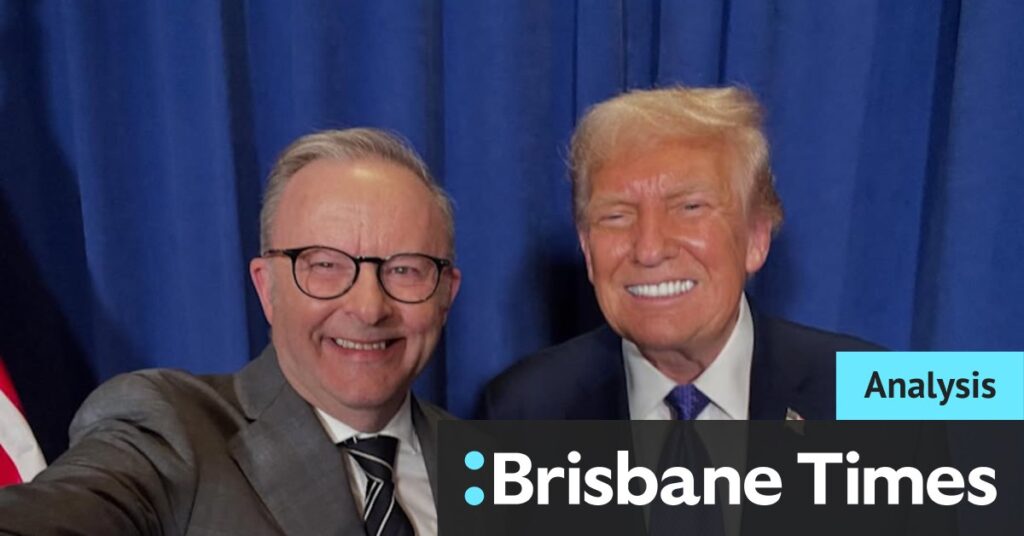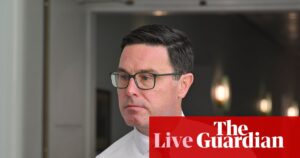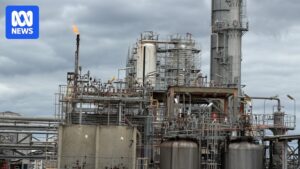
In a significant diplomatic development, Australian Prime Minister Anthony Albanese has confirmed a meeting with U.S. President Donald Trump at the White House next month. This meeting, scheduled for October 20, marks a crucial victory for Albanese, who has faced mounting political pressure over his inability to secure face time with Trump eight months into his second presidency.
Albanese’s confirmation of the meeting comes after a period of speculation and criticism, as his failure to engage directly with Trump had been perceived as a potential diplomatic snub. The prime minister’s relaxed demeanor during his recent visit to New York, despite the growing criticism, can now be attributed to the behind-the-scenes efforts to organize this pivotal encounter.
Albanese shared his enthusiasm on social media, posting a selfie with Trump at a welcome reception for world leaders attending the United Nations General Assembly. “Good to chat with President Donald Trump at US welcome reception for world leaders attending United Nations General Assembly hosted by @potus and @flotus,” he noted in the caption.
Background and Diplomatic Implications
The announcement of the meeting is also a positive development for Kevin Rudd, Australia’s ambassador to the U.S., who had been under scrutiny for his perceived lack of access to the White House. Rudd expressed his delight at the news, appearing alongside Albanese in New York with a visible sense of relief.
Despite the upcoming meeting, the 270-day gap between Trump’s inauguration and this bilateral encounter remains unusually long. This delay underscores ongoing challenges in the U.S.-Australia alliance since Trump’s return to office. Several indicators suggest that the U.S. views Australia as a lower priority, including the absence of a U.S. ambassador in Canberra and a Pentagon review of the AUKUS security pact.
Ideological Differences and Potential Challenges
The ideological divide between the Trump administration and the Albanese government has contributed to the delay in arranging this meeting. Trump’s recent address to the UN General Assembly highlighted these differences, as he criticized countries recognizing Palestine and dismissed climate change as “the greatest con job ever perpetrated on the world.”
“Trump accused countries that have recently recognised Palestine – like Australia – of rewarding terror group Hamas for its October 7 attacks.”
In contrast, Albanese plans to use his UN address to advocate for Australia’s ambitious climate goals and express interest in hosting the next global climate change conference. These stark differences in policy and worldview could present challenges during the upcoming White House meeting.
Looking Ahead: Building Personal Rapport
Despite these ideological disparities, there is hope that personal chemistry could bridge the gap between the two leaders. Trump has shown a willingness to build relationships with leaders across the political spectrum, as evidenced by his rapport with British Prime Minister Keir Starmer and Brazilian President Luiz Inácio Lula da Silva.
Albanese’s ability to navigate these differences and establish a personal connection with Trump could prove crucial. A thoughtful gesture, such as a diplomatic gift, may help in fostering goodwill, even if the philosophical differences remain significant.
As the meeting approaches, Albanese will need to balance the potential risks and rewards of engaging with Trump. While the encounter is essential for reinforcing the U.S.-Australia alliance, it also presents opportunities for diplomatic missteps, particularly if contentious issues arise during their discussions.
Ultimately, the success of this meeting will depend on Albanese’s diplomatic acumen and his ability to manage the complex dynamics of the U.S.-Australia relationship in the face of ideological and political challenges.





